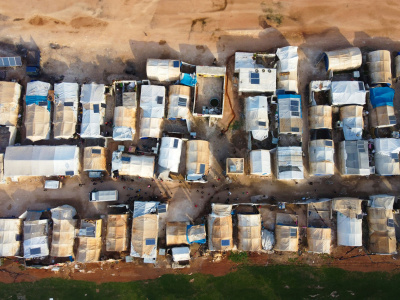
From universality to European reality? Is the EU up to the job of sustainable consumption and production?
What's on this page
The principle of ‘Universality’ in the post-2015 development agenda implies that all countries need to contribute to and achieve the Sustainable Development Goals (SDGs). The goals to be agreed this September at the UN General Assembly will apply to everyone. Europe will have to think hard on how to translate globally-agreed - albeit rather general - goals and targets into ambitious, meaningful, fair and context-specific national and regional policies that are relevant and in the strategic interests of the continent. This second element is referred to as a process of ‘Differentiation’. One of the most important aspects of the SGDs will be in finding adequate solutions to current consumption and production patterns that put the planet’s resources and its environment at risk. Goal 12 (ensure sustainable consumption and production [SCP] patterns) requires, as Horn-Phathanothai and Fishman from the World Resources Institute point out, “achieving a fair sharing of the planet’s resources for the benefit of all” that avoids a further deepening of inequalities and an even sharper divide between winners and losers. Listen to our discussion on how the post-2015 agenda has framed sustainable development as a 'universal' project, and the challenges ahead.... Target 12.2 of the Zero draft outcome document for the UN Summit to adopt the Post-2015 Development Agenda (by 2030 achieve the sustainable management and efficient use of natural resources) could be viewed as a particularly relevant target for the EU as a whole and for all EU member states. This is because the large amounts of global resources used by Europeans and the uneven impacts this has on a variety of other countries. It is also closely related to Target 12.5 (by 2030 substantially reduce waste generation through prevention, reduction, recycling and reuse) since waste and recycling play a growing role in the sustainable use of natural resources, such as minerals, that are very important for the EU economy.
Challenges of implementation of SDGs
Once the goals have been agreed in September, the real work of implementation will start. Translating global goals into national policies will not be as smooth as we all hope and in practice there are significant challenges that need to be overcome to make the agenda meaningful. First, production systems will have to become more sustainable, with major changes in employment patterns and use of technology in every country. Second, profound behavioural changes will be needed in the way we consume. Both these demands have different implications for different countries depending on the local context, capacity in technology and production, present consumption levels, demand for natural resources and the trends in consumption behaviour through time. When adapting the targets to national and regional contexts, the EU and its member states will have to consider the implications the SDG targets might have for their own development objectives as well as what their needs and priorities may be in the future. While there may be costs, there may also be opportunities. Take for example Target 12.2. The individual EU member states and the European Union as a whole will need to factor in both a future dependence on a variety of natural resources and the high demand for these resources by EU industries. European countries will have to find the right balance between dependence and demand for resources on the one hand, with means to recycle, reuse or even substitute on the other.Re-thinking Progress: The Circular Economy
Courtesy of the Ellen MacArthur Foundation
Finding that balance could bring important economic gains. Upgraded technology, more efficient resource use and increasingly effective waste and pollution management could contribute to more sustainable production patterns. Differentiation requires looking at EU capacities and starting points between EU member states themselves as well as between the EU as a whole vis-a-vis other regions. The differing capabilities of EU member states to deliver on these ambitions needs to be factored in.
